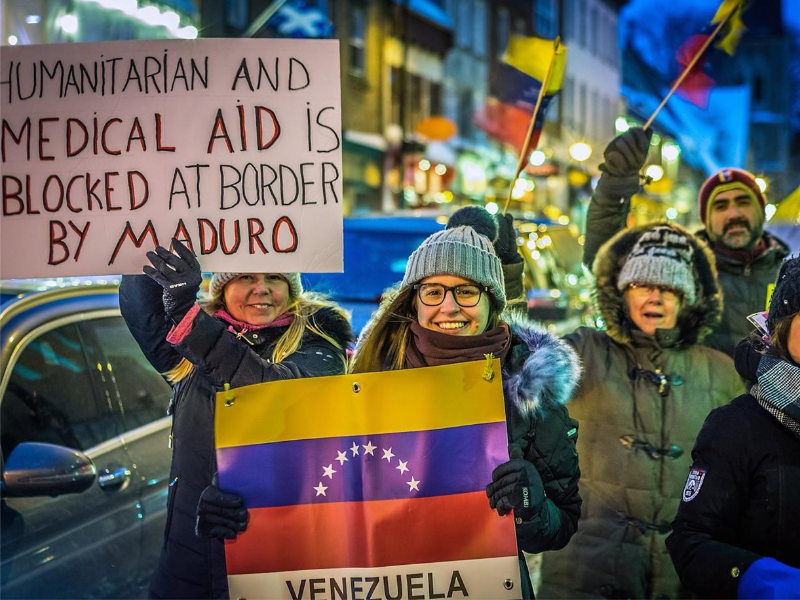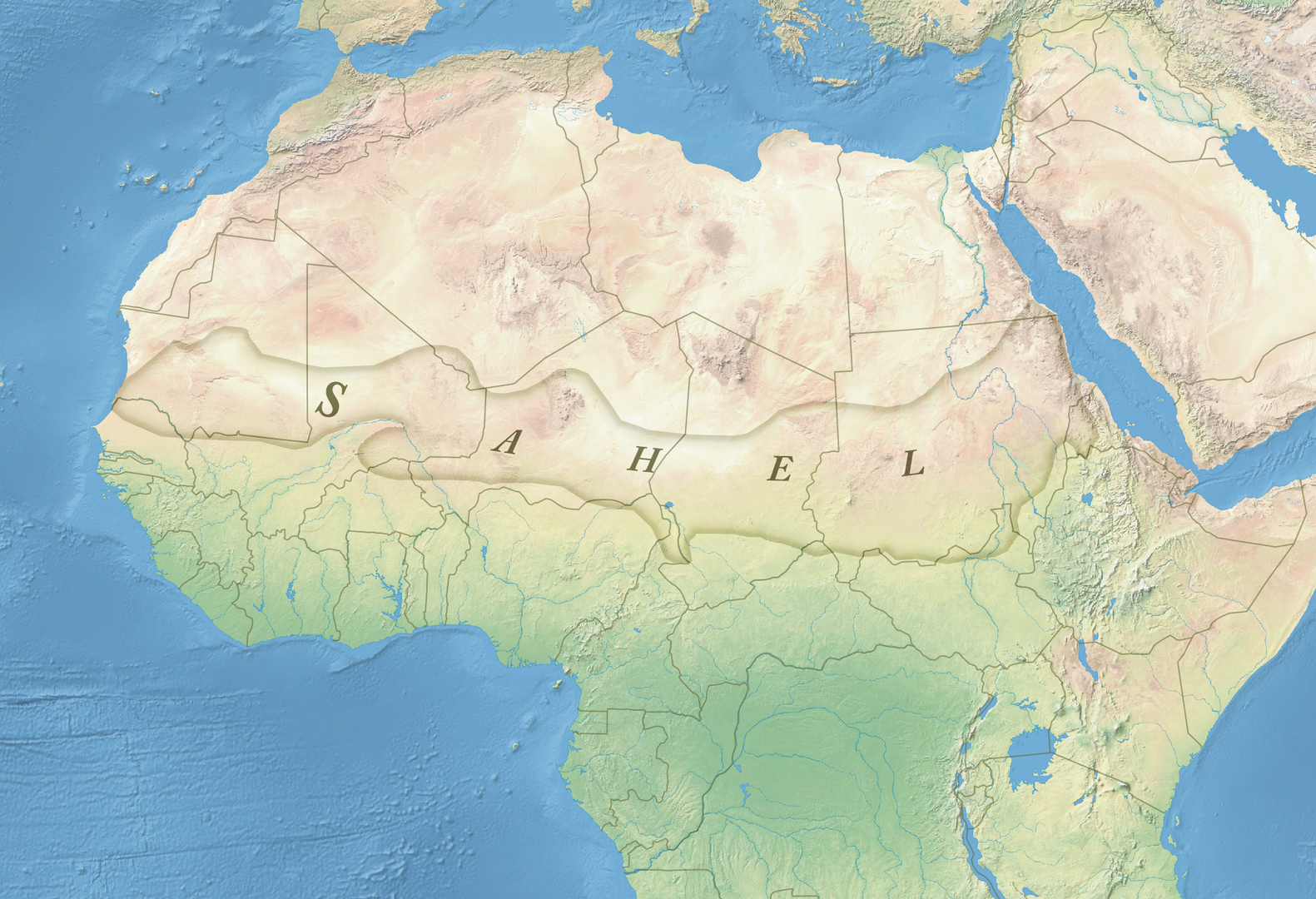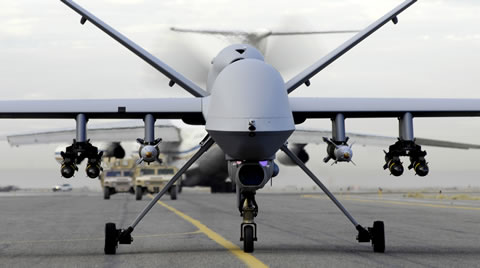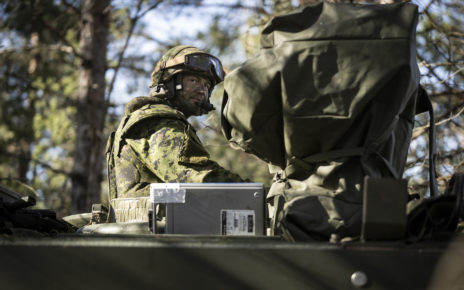Many Venezuelans are eagerly hoping the election July 8, 2024 can be used to restart the rule of law and democratic norms in their country. Why should Canada actively support this process? Under socialist President Nicolas Maduro, during the 2010s, Venezuela became known internationally as the most left-wing country in Latin America, with the exception of Cuba. Maduro has significantly curtailed all democratic rights and freedoms, created private militias called colectivos, which rely on coercive violence, made Venezuela a vassal of Russia, China, and Iran, and presided over crises of hyperinflation and rampant violent crime.
Against this backdrop, beginning in 2017, a significant number of other Latin American countries attempted to oust Maduro’s government through the creation of the “Lima Group.” Their motivations for ending Venezuela’s state of dysfunction were twofold: to respond to the internal humanitarian crisis and the flow of migrants that this produces, which the neighboring countries have limited willingness to absorb, and the professional organized crime in their countries that Venezuelan politics had produced. However, Maduro is now more securely entrenched than he was in 2019. The opposition no longer controls Venezuela’s congress, Maduro’s supporters are more firmly entrenched in state institutions and many opposition leaders, including Juan Guaido, have subsequently fled. This indicates that efforts to remove Maduro in 2019 failed.
The domestic context in Venezuela must be considered in order for any effort aimed at changing Venezuelan governance to be successful. As mentioned, a presidential election is scheduled this July, and polling indicates Maduro has the support of between a third and a fifth of Venezuelans. Prior to this elections’ primaries, there was a tripartite agreement that if both sides committed to fielding candidates, which means recognizing the other sides’ candidates and allowing election monitors, the United States would roll back sanctions targeting Maduro officials and Venezuelan oil production. However, the Supreme Court controlled by Maduro allies has vetoed the candidacy of both the opposition’s choice, Maria Corina Machado, and her provisional replacement, Corina Yoris, indicating their lack of commitment to honour this agreement with the USA, as well as their continued desire to maintain power through coercive force. The opposition has successfully nominated a little-known former ambassador, Edmundo Gonzales. However, it is both unclear if, should he win, the government (entirely Maduro-controlled) would allow votes to be counted and reported correctly or for Gonzales to assume the Presidency, or if the opposition would then try to inaugurate Machado as soon as possible. What is clear from the Supreme Court’s treatment of Machado is that Maduro has no intention of allowing a free election that he will almost certainly lose to take place. The regional political landscape is not as strongly supportive of assertive action to remove Maduro as it was in 2019. As well, Russia and China have increased financial, intelligence support, and military hardware aid to both the Venezuelan army and the private colectivos.
In her book, Cuba’s Intervention in Venezuela, Maria Werlau explains that most of the heads of the Venezuelan army, police force, and colectivos are Cuban, sent and financed by the Cuban government. As Werlau also explained, Cuban government actors also make up majorities of the Venezuelan government’s management teams of PdVSA (the state oil company) and the Orinoco mining firms, allowing the Cuban executives to benefit financially from this political arrangement. Since these actors are funded by the Cuban government, they would be at least partially insulated from financial sanctions against the Venezuelan government. Since they can simply return to Cuba should Venezuela achieve regime change, they currently have no reason to consider trying to mitigate repercussions imposed by a post-Maduro government in Venezuela.
Under these circumstances, any foreign effort to ensure a free election in Venezuela will be very difficult. The best options remaining for Canada would be to continue to work in coordination with like-minded regional and international allies, at this point including the leading regional leftist governments in Brazil and Colombia. Obvious support would include continuing coordination of sanctioning Venezuelan government officials and providing funds to opposition figures to try and achieve a free election. If Venezuelan opposition officials wanted to coordinate with pro-Maduro military forces in Venezuela to abandon, or even remove his regime, in exchange for rewards of wealth, sanction removal, immunity from prosecution, Canada and other national partners could have a role in using economic means to assure current Maduro-regime officials of the credibility of such negotiations with the opposition. Given practical and ethical concerns of sovereignty and a lack of desire to participate in coups, this is probably the limit of what Canada’s active involvement could consist of.
There are tangible national benefits for Canada to engage itself in this South American security challenge: most cocaine smuggled into Canada comes from Brazil, Colombia, and Venezuela. Canada achieving a new strategic ally in the region, to engage in easier trade with, is another strategic benefit. Following a successful transfer of power in Venezuela, Canada would likely have a new strategic partner, a growing economy, and a diversified cheap oil producer as a recipient of mutually profitable investments. The final incentive for action is based on Canada achieving its role as a compassionate middle power. Assisting the establishment of democratic governance in Venezuela would enhance Canada’s diplomatic capital in this regard. In recent years, Colombia, once an outpost of drug- and-communist-driven instability in Latin America, has moved in a direction more aligned with Western democratic governance and security interests, and serves as a model for how this evolution could be repeated elsewhere.
The strategic benefits would not be realized by Canada alone. Supporting the advancement of liberalism and democracy in the Americas would also be contributing to the democratic world’s fight against influences of authoritarianism internationally.
Photo: Demonstrations and protests about Venezuela in Quebec City, 2019, (2019) by Wilfredo Rafael Rodriguez Hernandez via Creative Commons. Licensed under Attribution-Share Alike 4.0.
Disclaimer: Any views or opinions expressed in articles are solely those of the author and not necessarily represent the views of the NATO Association of Canada.





